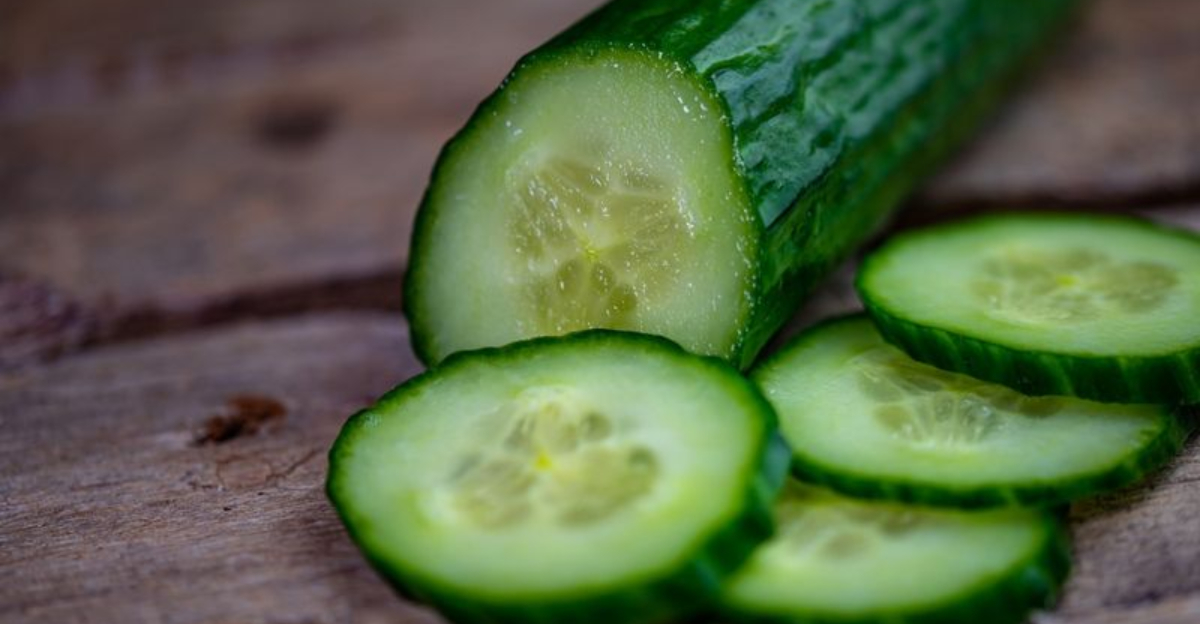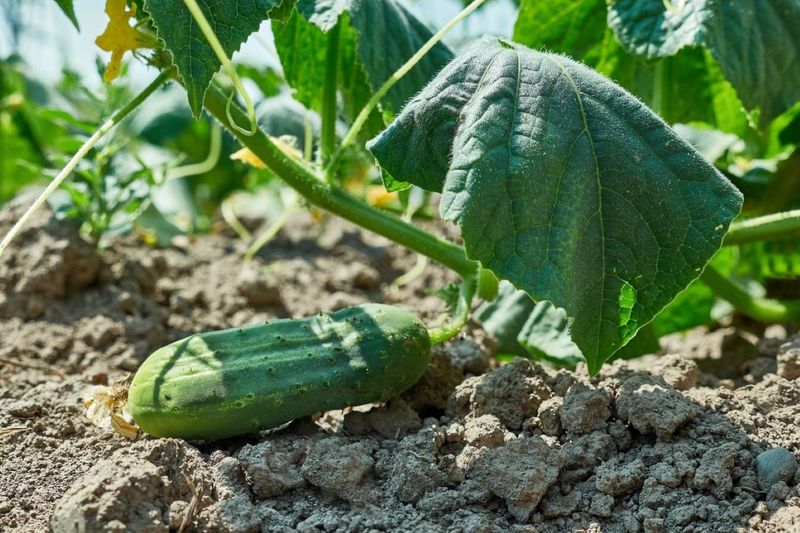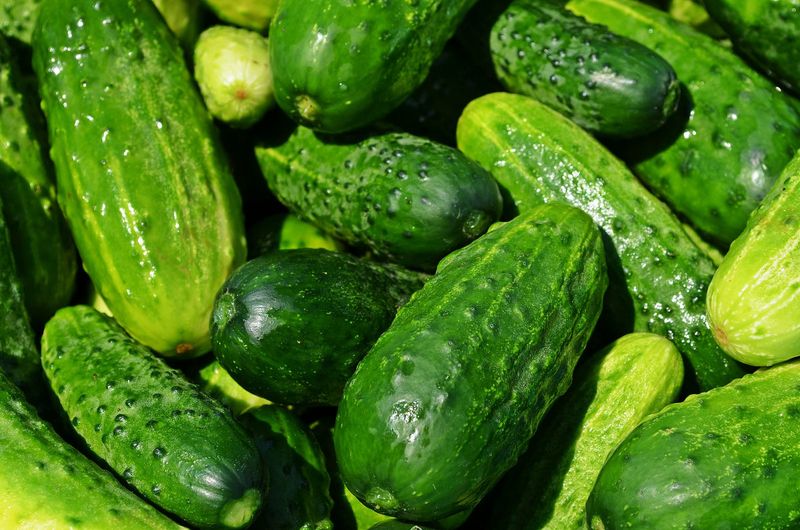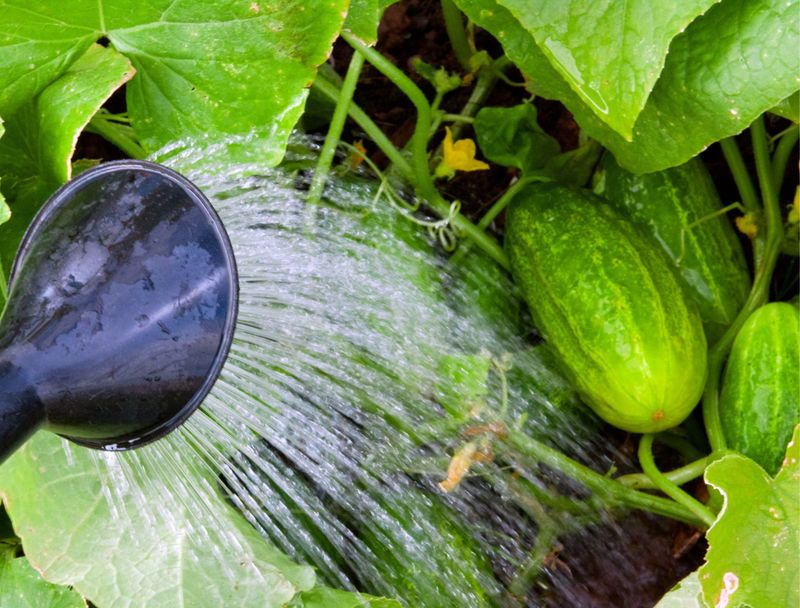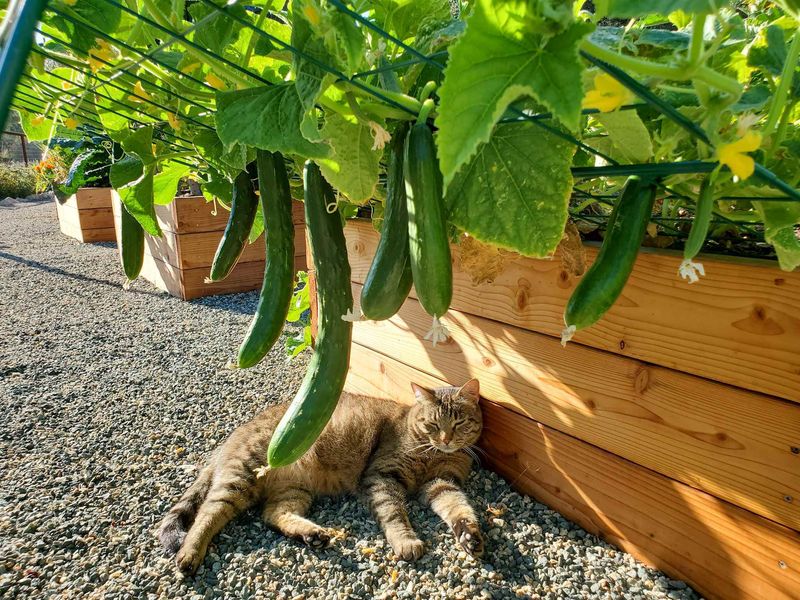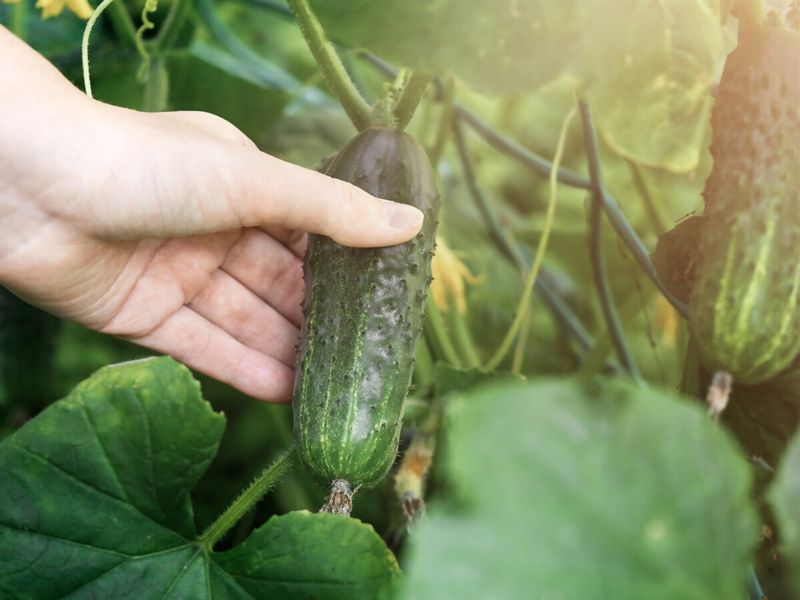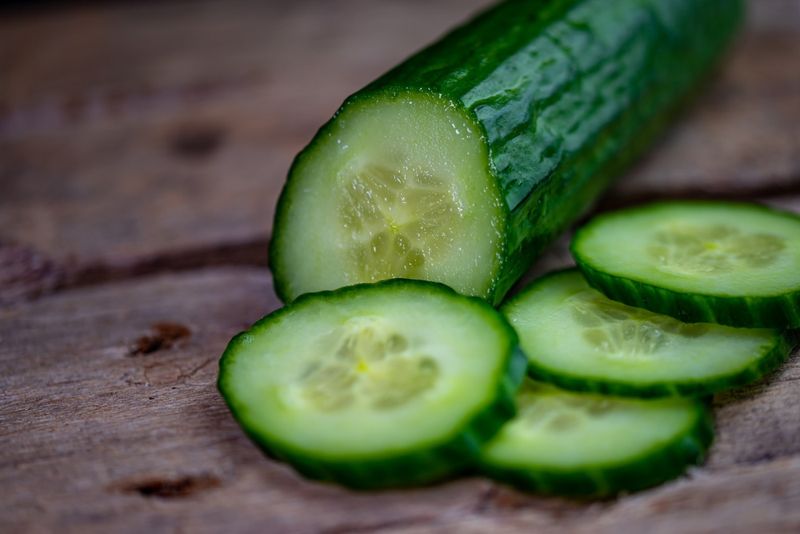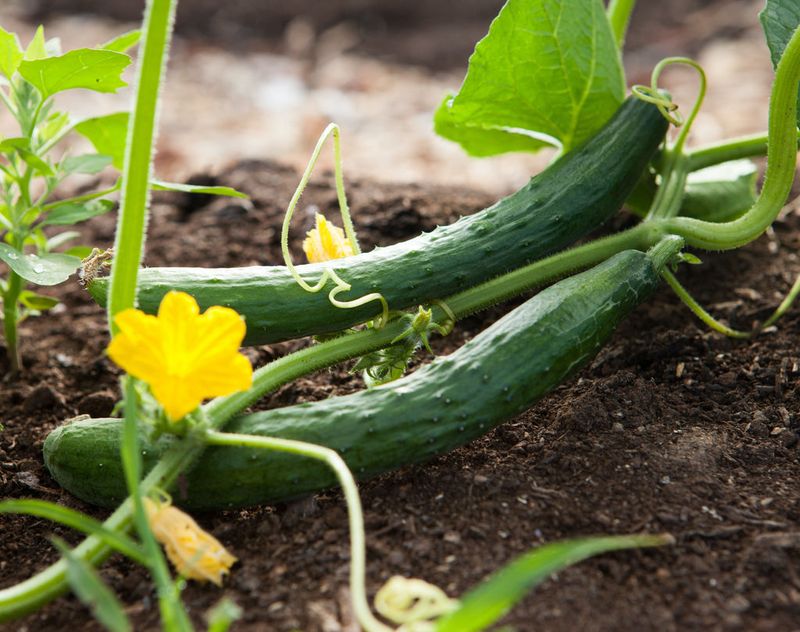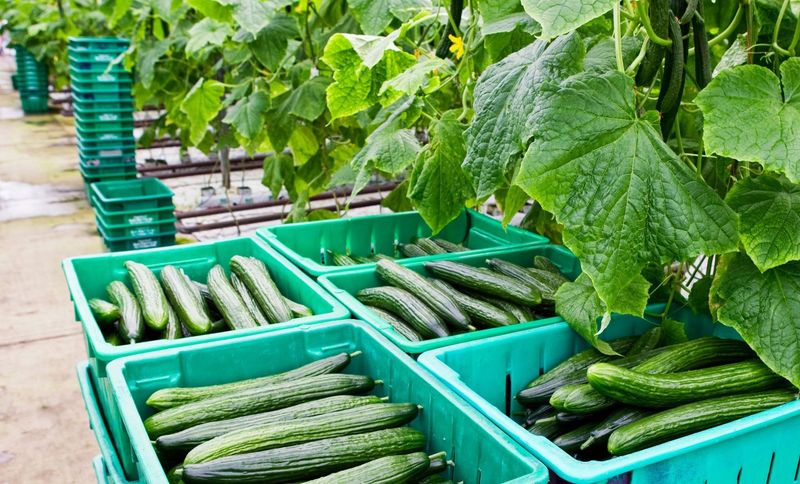Cucumbers are a refreshing staple in many dishes, but there’s nothing worse than biting into one and tasting bitterness. This unpleasant surprise can turn a delightful salad into an unappetizing experience. Understanding why this happens is key to preventing it.
Let’s explore the common reasons behind bitter cucumbers and how you can ensure your cucumbers stay crisp and delicious. We’ll cover everything from growing conditions to storage tips, so you can enjoy your cucumbers without any bitterness.
Read on to discover practical solutions and never face bitter cucumbers again!
1. Growing Conditions
Cucumbers thrive under specific growing conditions. Ensure they receive ample sunlight, as too much shade can lead to bitterness. Good soil drainage is crucial; waterlogged roots stress the plant, producing a bitter taste.
Maintain a consistent watering schedule, as irregular watering can cause bitterness. Temperature plays a role, too; cucumbers prefer warm weather. Inadequate warmth can stress the plant. Providing the right environment helps prevent bitterness.
Consider mulching to retain soil moisture and regulate temperature. With proper care, your cucumbers will grow sweet and enjoyable. Pay attention to these details, and your harvest will be rewarding.
2. Variety Selection
Choosing the right cucumber variety can make all the difference. Some varieties are naturally less bitter, such as the Armenian or English cucumbers. These types are bred to minimize bitterness and offer a sweeter flavor.
When selecting seeds, look for those labeled “burpless” or “sweet.” These labels often indicate varieties with less bitterness. Growing different varieties can also provide a taste comparison.
Experimenting with various types might lead you to a new favorite. Enjoying cucumbers without bitterness starts with variety choice. Choose wisely, and you’ll have a delicious harvest.
3. Proper Watering
Watering cucumbers requires consistency. Inconsistent watering leads to stress, a known cause of bitterness. Cucumbers need about an inch of water per week. During hot spells, increase watering to compensate for evaporation.
Morning is the best time to water, allowing the plant to hydrate before the sun’s heat. Avoid wetting the foliage, as it can promote disease. Use mulch to retain soil moisture and reduce evaporation.
Monitor soil moisture with your fingers; it should be moist but not soggy. Proper watering ensures healthy growth and reduces bitterness. Master this technique for better-tasting cucumbers.
4. Temperature Management
Cucumbers are sensitive to temperature fluctuations. They prefer temperatures between 70-85°F. Extreme temperatures, either too hot or cold, cause stress, leading to bitterness. During heat waves, provide shade using cloths or other materials.
In cooler climates, consider using row covers to maintain warmth. Planting after the last frost date helps avoid cold stress. Temperature management is crucial for sweet cucumbers. Monitor weather forecasts and adjust care accordingly.
With proper temperature control, cucumbers will develop their best flavor. Ensuring stable temperatures is a key step in avoiding bitterness.
5. Harvest Timing
Timing is everything when it comes to harvesting cucumbers. Picking them too early or too late can affect taste. Cucumbers should be harvested when firm and a deep green color. Overripe cucumbers tend to be bitter.
Regularly check your plants to pick cucumbers at the ideal time. Use scissors or a knife to cut them from the vine, avoiding damage. Frequent picking encourages more growth and reduces bitterness.
Enjoy a sweeter taste by harvesting at the right moment. Keeping an eye on maturity ensures a delightful cucumber.
6. Genetic Factors
Sometimes, bitterness is a genetic trait in cucumbers. Certain heirloom varieties carry genes that can produce bitterness. Understanding the genetic background of your cucumbers helps in managing expectations.
Seed packets often include information about potential bitterness. Opt for modern hybrids designed for better flavor. These varieties are bred to minimize bitterness. If you prefer heirlooms, research specific strains known for sweeter taste.
Knowing your cucumber’s genetics aids in selecting the best type for your needs. Genetics play a role, but informed choices lead to enjoyable results.
7. Soil Nutrients
Soil health is vital for cucumber flavor. Nutrient deficiencies, particularly potassium, can lead to bitterness. Conduct soil tests to identify any imbalances. Amending soil with compost or balanced fertilizers can improve nutrient levels.
Pay attention to pH levels; cucumbers prefer slightly acidic to neutral pH. Proper nutrient management supports healthy growth. Regularly feed your plants to maintain optimal soil conditions.
Healthy soil produces cucumbers with better taste and texture. Understanding and managing soil nutrients reduces bitterness. Invest in soil care to enjoy flavorful cucumbers.
8. Storage Practices
How you store cucumbers affects their taste. Improper storage can lead to bitterness. Keep cucumbers in a cool, humid environment, ideally in the refrigerator’s crisper drawer.
Avoid storing them near fruits like apples or bananas, which emit ethylene gas, hastening ripening and bitterness. Wrap cucumbers in a damp cloth to maintain moisture. Use them within a week for best flavor.
Proper storage preserves cucumbers’ sweetness and texture. Follow these practices to enjoy fresh and tasty cucumbers. Good storage is the final step in preventing bitterness.
